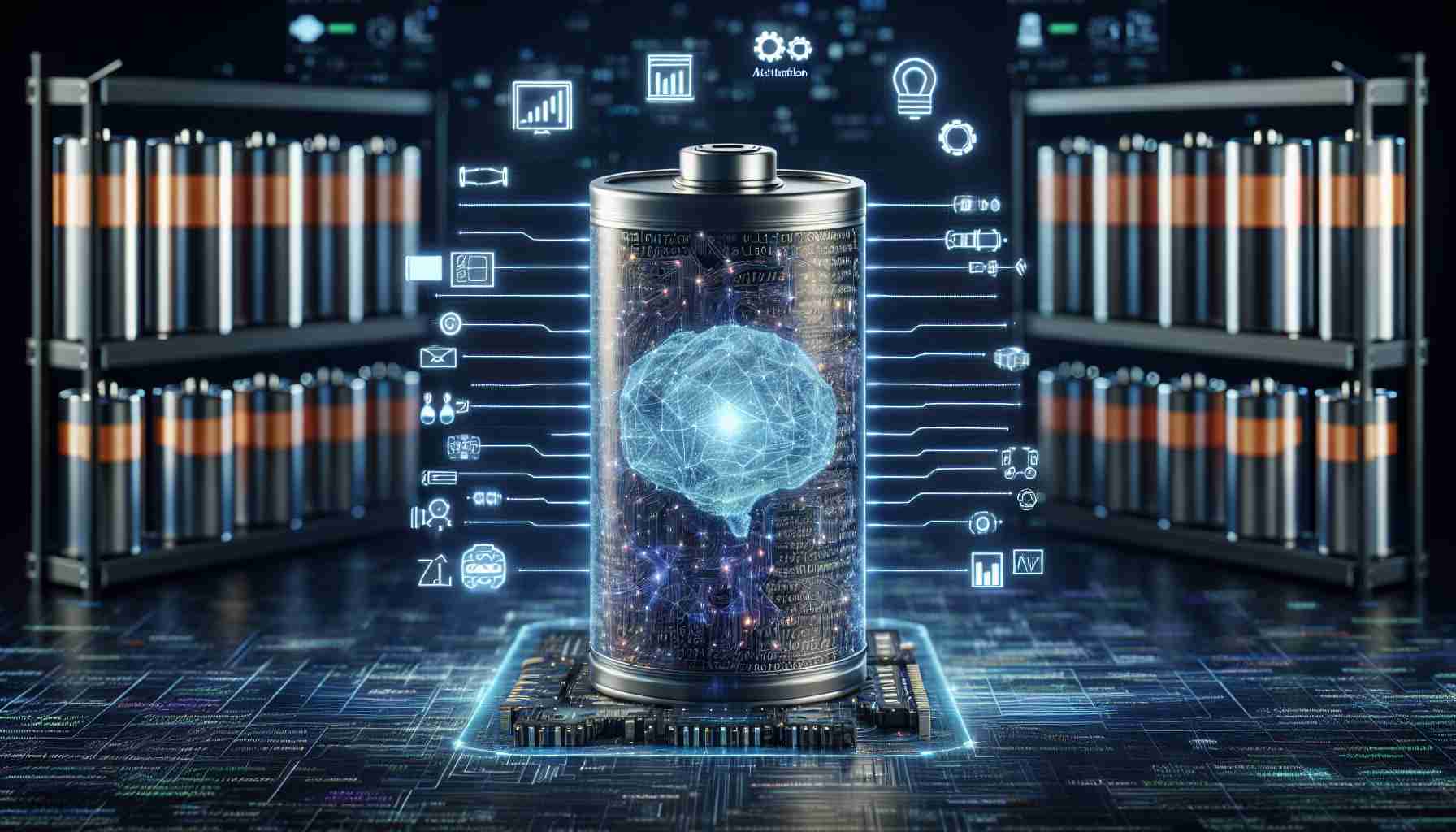The power of artificial intelligence (AI) to revolutionize the development of new battery materials is gaining recognition among industry experts. With the pressing need to combat climate change, AI is seen as a tool that can significantly shorten the time it takes to innovate in the battery sector.
Belgium’s Umicore, in collaboration with Microsoft, is among the pioneering companies harnessing the potential of AI in battery material discovery. Mathias Miedreich, Umicore’s CEO, emphasized that AI could have an „immense impact” on the development and commercialization of new battery materials. The goal is to reduce the time to market for new products, cutting the typical five to six-year research stage to just two years.
Umicore, a major supplier of battery materials for renowned automotive companies like Volkswagen, BMW, Stellantis, and others, has already begun filing AI-enabled patents. The focus lies primarily on solid-state materials and disorder rock salts, which have the potential to significantly enhance the driving range of electric vehicles and unlock new battery applications.
The battery industry draws inspiration from the pharmaceutical sector, where AI has already revolutionized the drug development process. Battery producers eagerly anticipate AI’s ability to speed up various phases of the material discovery process. By leveraging AI, they can more effectively identify the right materials and their optimal proportions, expanding the possibilities for battery innovation.
Recent collaborations, such as that between Microsoft and the Pacific Northwest National Laboratory, have demonstrated the power of AI in narrowing down millions of materials to a handful of promising candidates in a fraction of the time previously required. However, experts warn that computing power may become a limiting factor in fully unleashing AI’s potential. Additionally, extensive real-world testing is necessary to ensure the performance and safety of batteries using these new materials.
Nevertheless, the adoption of AI in battery material discovery provides the Western world, especially the US, with an opportunity to catch up with dominant Asian rivals in the global battery industry. By leveraging AI, the US could optimize battery materials that are readily available and reduce reliance on China.
As the world seeks sustainable solutions to combat climate change, AI offers an exciting avenue for accelerating battery innovation. With ongoing advancements in AI and automation, the potential for groundbreaking discoveries in battery materials becomes all the more promising.
FAQ on the Power of Artificial Intelligence in Battery Material Discovery
1. How can artificial intelligence (AI) revolutionize the development of new battery materials?
AI is recognized by industry experts as a tool that can significantly shorten the time it takes to innovate in the battery sector. It can help identify the right materials and their optimal proportions, leading to faster development and commercialization of new battery materials.
2. Which company is collaborating with Microsoft to harness the potential of AI in battery material discovery?
Belgium’s Umicore is collaborating with Microsoft to leverage AI in battery material discovery. Umicore, a major supplier of battery materials for automotive companies like Volkswagen, BMW, Stellantis, and others, aims to reduce the time to market for new products.
3. What is Umicore’s focus in terms of battery materials?
Umicore’s focus lies primarily on solid-state materials and disorder rock salts, which have the potential to significantly enhance the driving range of electric vehicles and unlock new battery applications.
4. How has AI revolutionized the drug development process in the pharmaceutical sector?
AI has already revolutionized the drug development process in the pharmaceutical sector. Similarly, battery producers anticipate that AI can speed up various phases of the material discovery process, enabling more effective identification of the right materials and their proportions.
5. What has recent collaboration between Microsoft and the Pacific Northwest National Laboratory demonstrated?
The collaboration between Microsoft and the Pacific Northwest National Laboratory has demonstrated the power of AI in narrowing down millions of materials to a handful of promising candidates in a much shorter time than previously required.
6. What challenges may limit the full potential of AI in battery material discovery?
Computing power may become a limiting factor in fully unleashing AI’s potential in battery material discovery. Additionally, extensive real-world testing is necessary to ensure the performance and safety of batteries using these new materials.
7. How can the adoption of AI in battery material discovery benefit the Western world?
The adoption of AI in battery material discovery provides the Western world, especially the US, with an opportunity to catch up with dominant Asian rivals in the global battery industry. By leveraging AI, the US can optimize battery materials that are readily available and reduce reliance on China.
8. How does AI contribute to accelerating battery innovation for sustainable solutions?
As the world seeks sustainable solutions to combat climate change, AI offers an exciting avenue for accelerating battery innovation. Ongoing advancements in AI and automation hold the potential for groundbreaking discoveries in battery materials.
Key Terms and Definitions
– Artificial Intelligence (AI): The simulation of human intelligence processes by machines, typically through computer systems, encompassing activities such as problem-solving, learning, and decision-making.
– Battery Materials: Substances used in the construction and operation of batteries, including cathodes, anodes, electrolytes, and separators.
– Solid-State Materials: Materials that possess a solid crystalline structure rather than a liquid or gaseous form.
– Disorder Rock Salts: Battery materials characterized by their disordered atomic structure, which can enhance the performance of batteries.
Suggested Related Links
– Umicore: Official website of Umicore, a company collaborating with Microsoft to harness the potential of AI in battery material discovery.
– Microsoft: Official website of Microsoft, involved in collaborations related to AI in battery material discovery.
– Pacific Northwest National Laboratory: Official website of the Pacific Northwest National Laboratory, involved in collaborative projects with Microsoft in the field of AI research.
